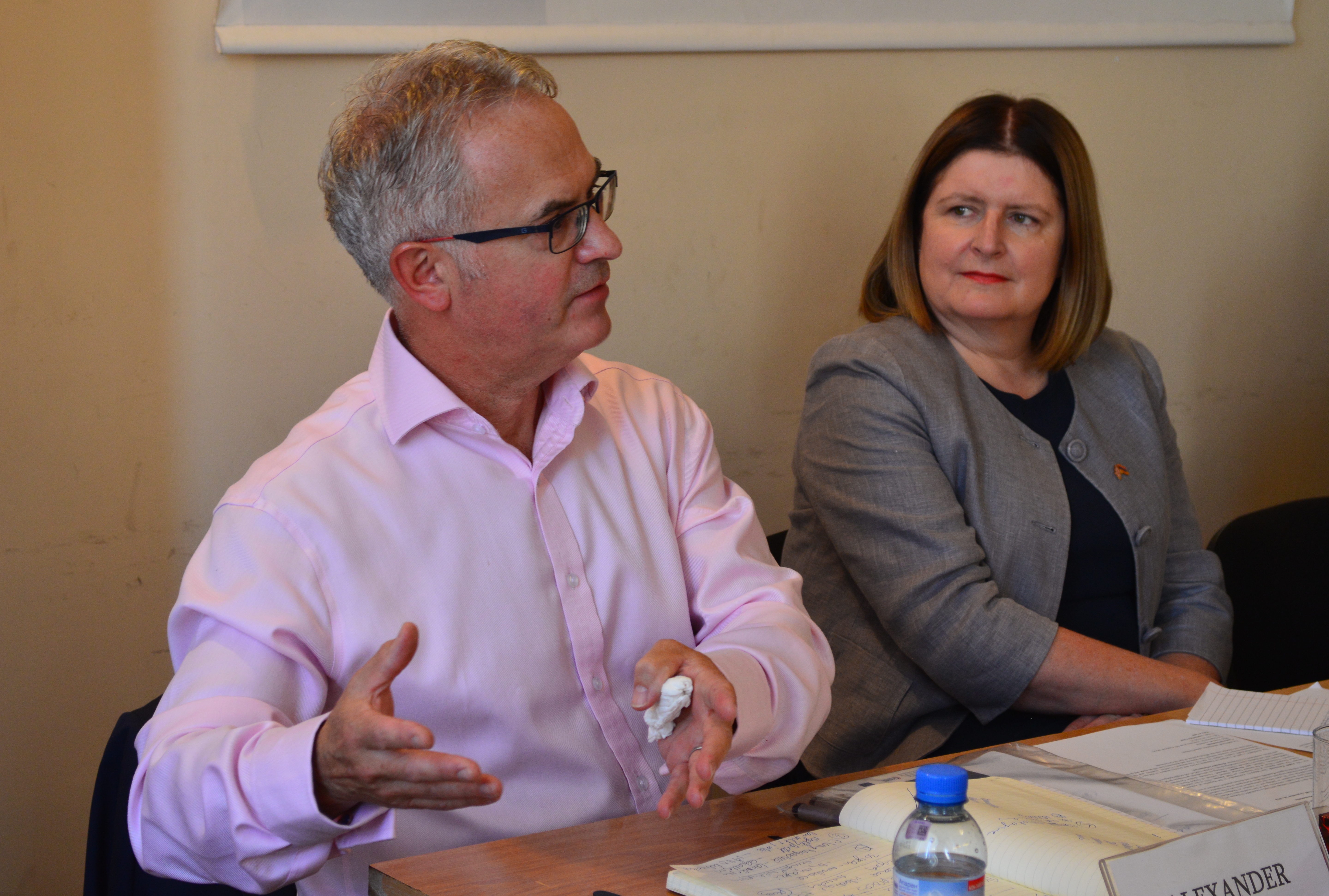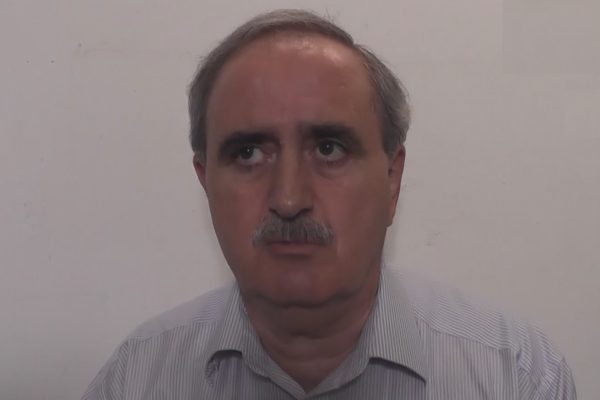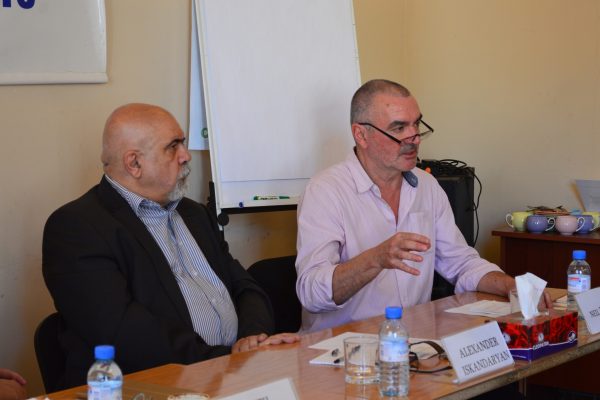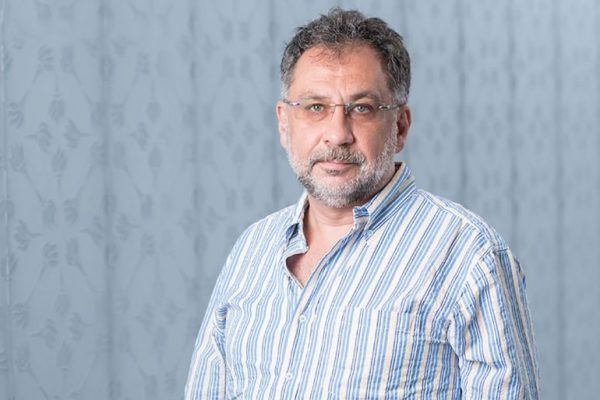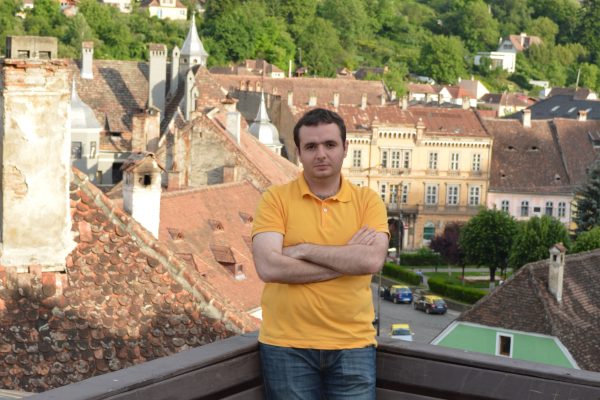“Whilst I will make some comments about how we’ve gone bad in Northern Ireland in recent times, nothing should lead away from the fact that Northern Ireland is a far, far better place now than it has been at any time during my life and that’s nearly 60 years. The end of violence, the creation of the political agreement of 1998 and all the opportunities that came with that are immense and nothing should ever diminish what it is that we as a people have achieved”.
Alexander Attwood, a veteran politician from Northern Ireland, who has served as Minister for Environment in the Northern Ireland Executive chose these words as an opening to his public lecture “Northern Ireland 20 years after Good Friday Agreement” at the American University of Armenia.
While presenting his country’s experience during a visit to Armenia he spoke frankly about both the achievements and the shortcomings that the people and authorities of Northern Ireland had during the last 20 years since the Good Friday agreement was reached in 1998 putting an end to the military phase of the conflict in his homeland.
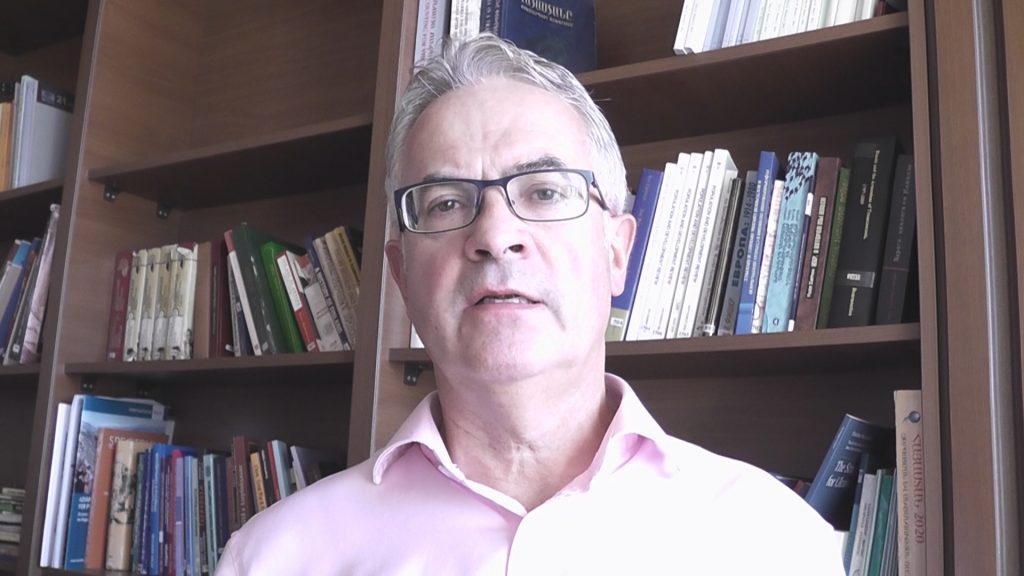
The Backbone of The Peace Process
The role of the communities of Northern Ireland in the peace process can’t be stressed enough. Mr. Attwood calls them its backbone because they did not allow the civil conflict to escalate into civil war.
“They are active part of strength of the Northern Ireland and its politics, and after the big political agreement of 1998 more and more the communities (Protestants and Catholics, nationalists and unionists, Irish and British) began to enter into deeper and deeper dialog, and there are more and more levels of reconciliation”, says Attwood.
So, people who come from very bitter and hurt experience found the strength to reach out to each other in Northern Ireland. But there is another side of the coin too, as the division between the communities is also still there.
“If you go to West Belfast, a part of Belfast today, you will see walls that divide the two communities. And those walls are unchanged for 20 years, symbolizing and telling us, that there’s much more work to do in terms of reconciliation and peace-building and making people live and work together”.
The Nature of The Conflict
Many people believe that the core of the conflict in Northern Ireland was the religion and it was a confrontation between Protestant and Catholic Christians. But that was not actually the case, according to Alex Attwood. He explains the essence of the conflict as a confrontation between two political identities: the Irish who wanted the island of Ireland united, not divided, and the British, who valued the Union with the United Kingdom and were loyal to the British Queen.
The Northern Irish politician sees the wonder of the peace agreement in the accommodation of those two political identities. “Yes, there were religious overtones, but it was political in nature”, he sums up adding that today very few people go to church while 30-40 years ago virtually everybody did. “We are much more secular now, but we’re not as secular as we need to be as a progressive society on the edge of Europe”, says Attwood.null
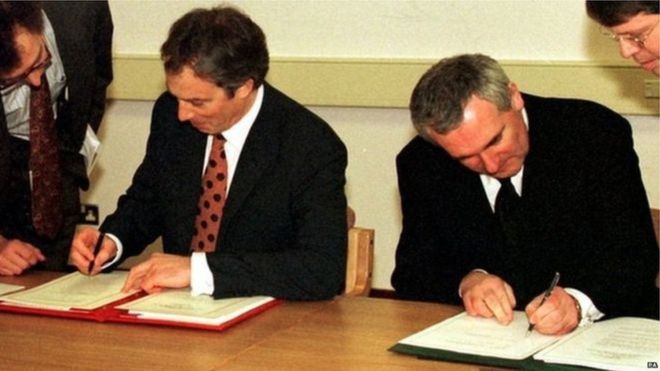
An optimistic stance towards the future
When asked whether he is optimistic about the final outcome of the Northern Ireland issue the politician recalls that if you would ask people in Northern Ireland in 1968 or 1978 or 1988 would there be an end of violence and a political agreement after centuries of dispute, they would have said, “Absolutely not”. And yet it happened in 1998.
“Yes, we have troubles back in Belfast and in Northern Ireland. We’ve not had a government for 600 days. But the overall project of peace-building and reconciliation and government, that serves the needs of the people – those are now the new pillars of Irish democracy, and even though we can not get into Government again, I do not think we’re going to pull back from those pillars of Irish democracy”, he believes.
The visit of Alexander Attwood to Armenia in September 2018 was part of a project on Engaging society and decision-makers in dialogue for peace over the Nagorno-Karabakh conflict implemented by the Caucasus Institute and funded by the UK Government’s Conflict, Stability and Security Fund. The opinions and statements that are made by the speaker may not coincide with the official position of the UK Government.

